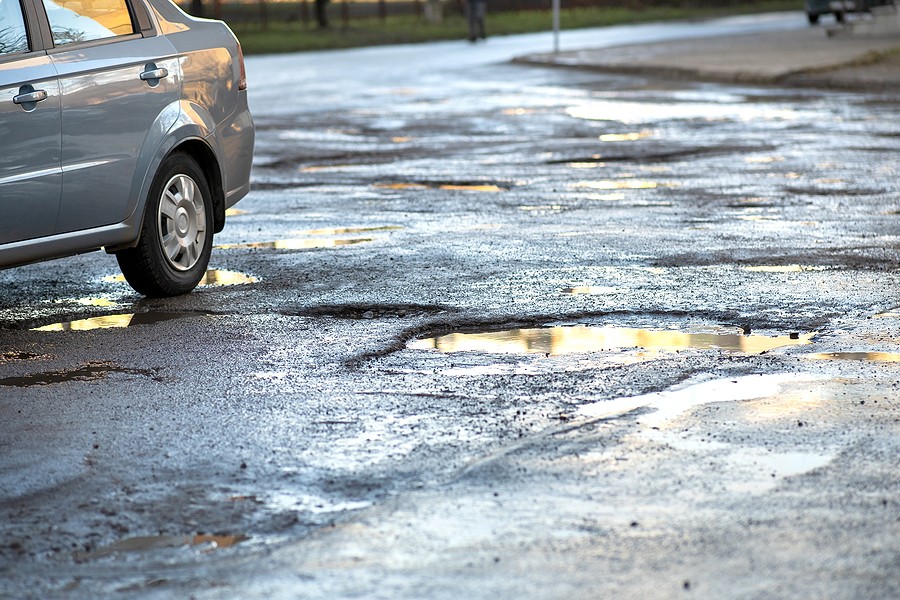If you're searching for “how to tell if a pothole damaged car,” here are six tips to follow:
- Take a look at the tires
- Check the wheels and rims
- Look into the steering and suspension systems
- Monitor for any weird noises
- Check the fluid levels
- Monitor the vehicle handling
Potholes are very critical when it comes to vehicle safety. Many cars were impacted by pothole damages, which could be severe because it affects sensitive sensor systems like the suspension system.
If you're a car owner concerned that your vehicle got pothole damaged or are planning to purchase a used vehicle but are concerned that this vehicle was involved in some damage related to a pothole. You have to do the right inspection.
Even before contacting your mechanic, there are simple steps that you could take to help yourself identify whether this vehicle got impacted or damaged by a pothole.
This article provides you with six important steps that you could take to answer the question “How to tell if a pothole damaged car?” Remember that these are simple steps, and if you feel that the vehicle is still concerning your comment, you can talk to your mechanic.
How to tell if a pothole damaged car?
Pothole damages can be very severe, especially if the driver didn't pay close attention to how big the pothole was and did not immediately take immediate action. It can be hard for new car buyers to tell whether or not this vehicle got pothole damage.
The good news is that automotive experts understand this challenge, so they put together a list of items you must check to confirm whether a pothole damaged this vehicle.
The list below provides you with six important steps that you could take to answer the question “How to tell if a pothole damaged car:”
1. Take a look at the tires
The first thing most important thing that you need to check is the tires. Typically, the tires are the first components interacting with the road, and whatever damage is on the road, you'll see it immediately on the tires.
It should be very straightforward if you don't have previous experience in how to check. In other words, you have to look for damage, any signs of cuts, or potential punctures in some scenarios.
However, the biggest challenge is when the potholes do not directly damage the vehicle's exterior. In other words, you might be dealing with a problem internally inside the tire, and it's not visible outside.
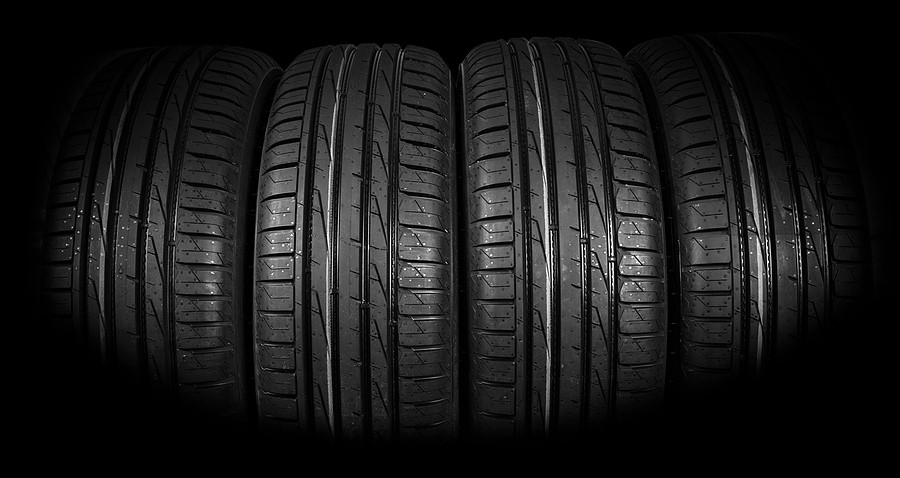
2. Check the wheels and rims
If you confirm that the tires are in good shape, the next step is to look at the wheels and rims. The wheels and rims are the second components that might get impacted by any road damage, and you will see them impacted immediately.
The first thing you should look for is any potential visual damage. For example, if you feel that the wheels are deformed or have some issues with how they look. Then, it could be a problem related to the pothole damage.
Sometimes you might not see visible damage on the wheels and rims, but you might notice them while driving. For example, if you feel that the vehicle is not aligned properly and is somehow pulling towards one side more than the other, it could be a problem related to pothole damage. Still, it won't be the only problem.
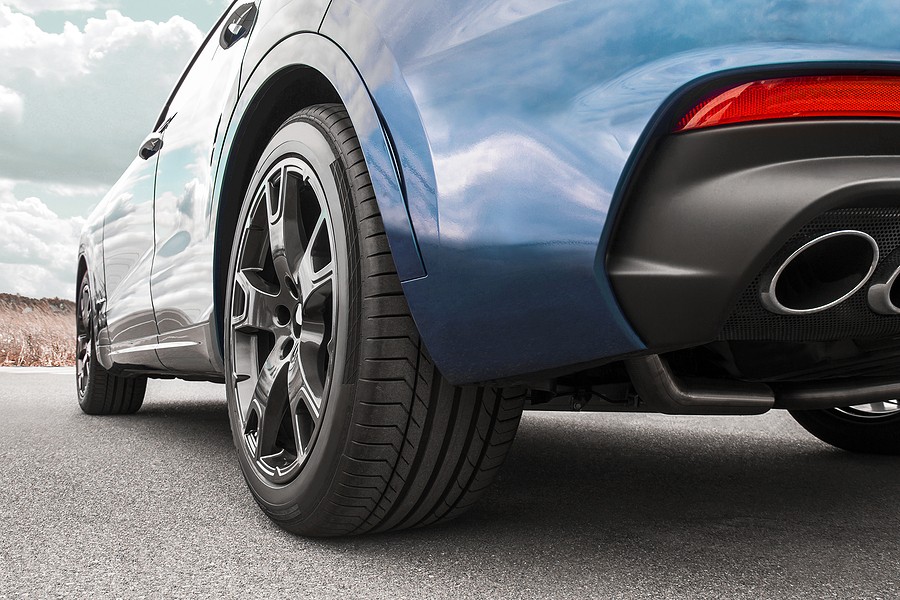
3. Look into the steering and suspension systems
If you confirm that the tires, the wheels, and the rims are all in good shape, the next step is to look at the steering and suspension systems. These systems can be very complicated, but with careful attention and monitoring of the weird behaviors and shapes, you can determine whether pothole damage impacted your vehicle.
For example, if you think the vehicle is bouncing weirdly, it could be a problem with the suspension system. This will not confirm that the vehicle got this problem because of the pothole damage unless you notice that the vehicle bounces right after you got through a pothole.
If you also notice that the vehicle is pulling towards one side more than the other or it's not responding the way it should whenever you try to pull it, it could be an issue with the steering system that got impacted by pothole damage.
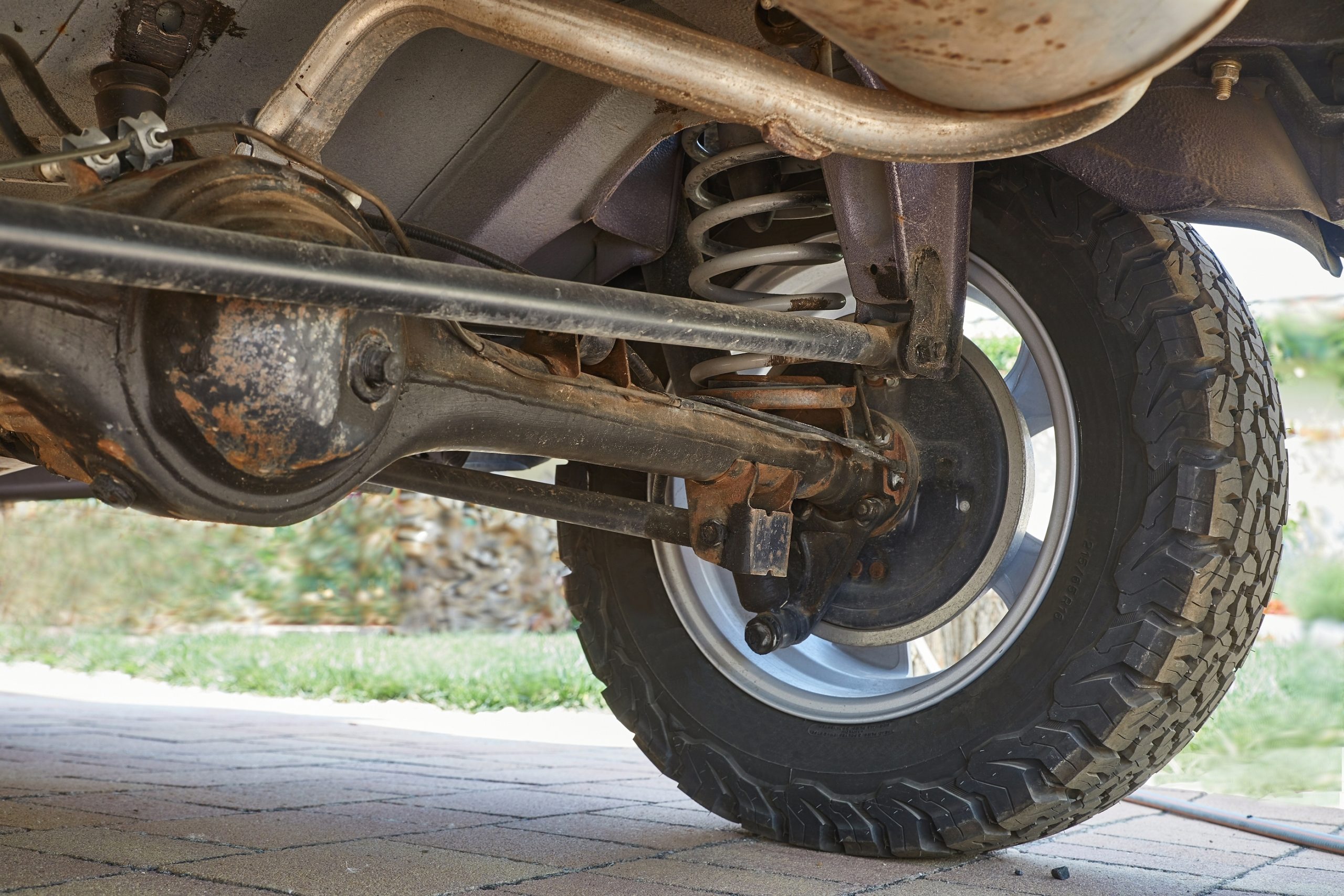
4. Monitor for any weird noises
In some instances, you'll notice that any pothole damage will immediately impact your vehicle, which is obvious through weird noises. These noises will come from specific locations and have a specific way.
For example, if you hit a pothole and realize that the vehicle started squeaking or making some grinding or clunking noises, it could indicate that the vehicle got impacted; you have to look closer to check where this problem is coming from.
According to automotive experts, take it as a rule of thumb whenever you notice any weird noises coming from your car, you have to take it seriously, and you can't ignore it because the more you ignore it, the more complicated it gets. The harder it is for you to fix it.
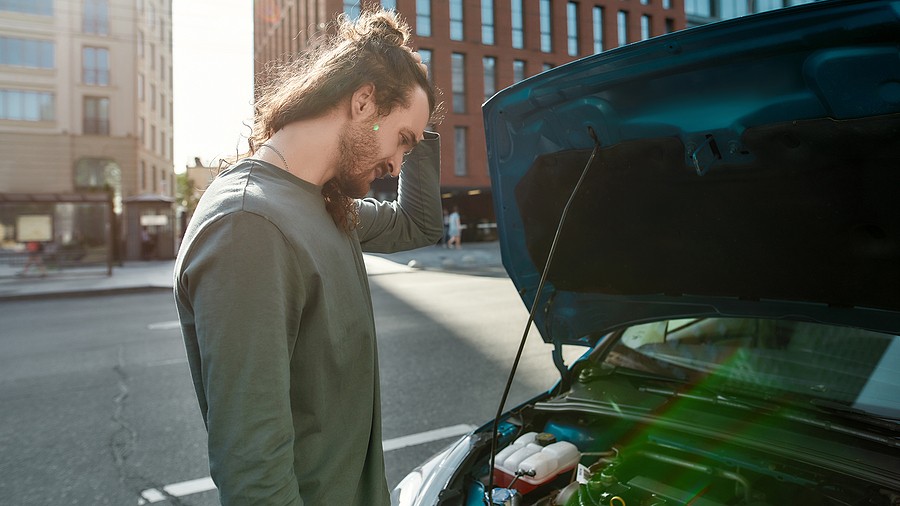
5. Check the fluid levels
Did you know that sometimes major pothole damages could impact your fluid levels by causing them to leak outside the car?!
That's why one of the automotive experts' recommendations is to check fluid levels. In most scenarios, you need to check on the cooling level or sometimes the oil level because if those get reduced beyond the minimum level, they can result in severe problems.
Fluid levels are one of those issues that you cannot immediately tell the cause of the problem. In other words, if you see your coolant levels dropping, it does not necessarily mean your vehicle got damaged by the pothole.
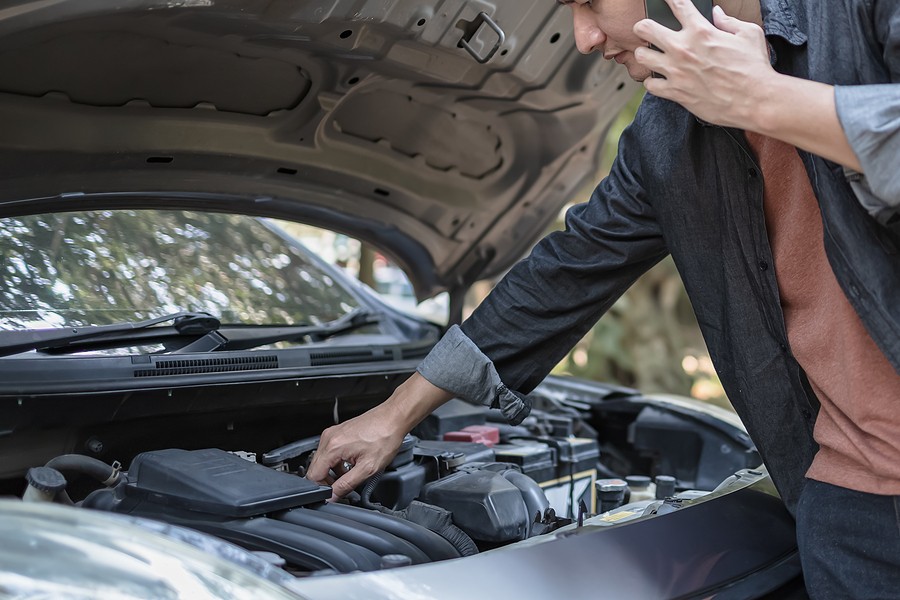
6. Monitor the vehicle handling
Finally, in many cases, when people drive through a pothole, they'll notice that the car does not have the right and same way of handling. In other words, it does not respond to your braking or some of the actions you used to do to the vehicle.
If you feel the car is not behaving as it should, do not ignore the problem, even if it sounds minor. Sometimes texting problems early can help you fix the problem without spending thousands of dollars on repair.
You might need to take the vehicle to the mechanic if the problem occurs immediately after driving through a pothole. This will help the mechanic focus the inspection on certain components that might get impacted by this situation.
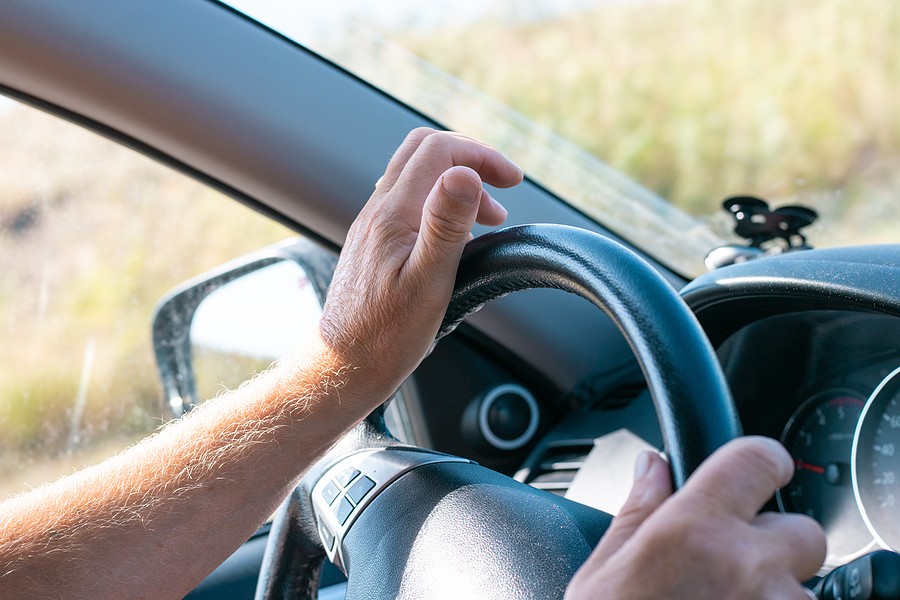
How to avoid pothole damage?
As you might notice, pothole damage can impact your vehicle significantly and damage sensitive components that will cost you thousands of dollars for repair. That's why you must first understand how to prevent this problem so you don't have to deal with all of that.
The following list provides you with some recommendations by automotive experts on what exactly you need to do to avoid dealing with pothole damages:
- Pay attention to the roads and avoid any potholes whenever possible
- Slow down if you feel that there are a lot of potholes around you
- Avoid driving through puddles because they might have potholes underneath them
- Keep your vehicle maintained and monitor the tires
- Choose a different route if you feel there is a construction or potential potholes in the area
- Invest in good quality tires that can stand road damages
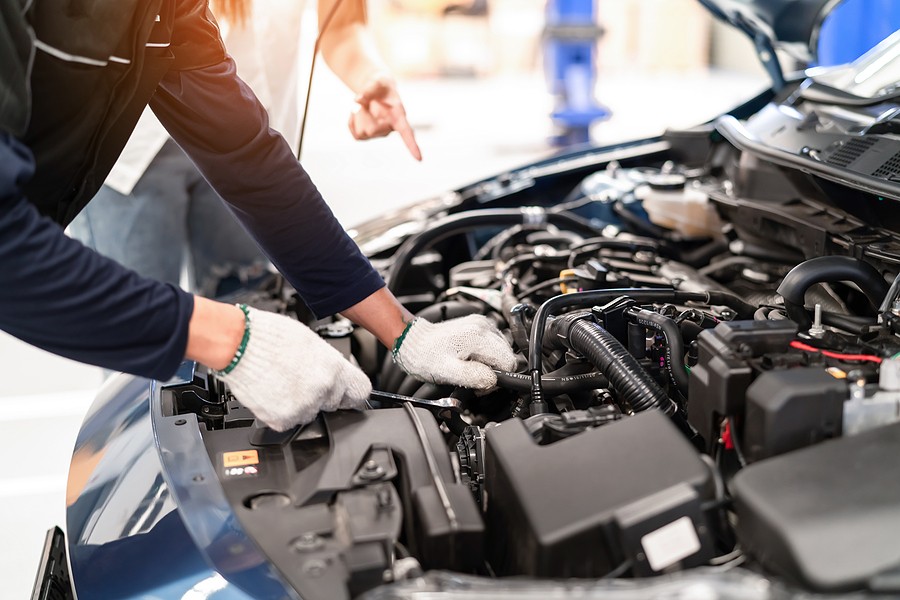
How to tell if a pothole damaged the car? Final Thoughts
Pothole damage can be a significant problem for Vehicles, especially if it is a major pothole. Therefore, as a car owner, you should immediately monitor the vehicle and see its behavior right after driving through a pothole if it was the case.
This article provided detailed guidance and six important steps when asking, “How to tell if a pothole is a damaged car?”
If you feel that your vehicle got significantly impacted by this pothole and you think the repair costs are very high, it could be the perfect time to sell this vehicle; if you need help, contact Cash Cars Buyer at 773-791-4363.
If you're interested in similar articles, visit our blog at cashcarsbuyer.com/blog.

